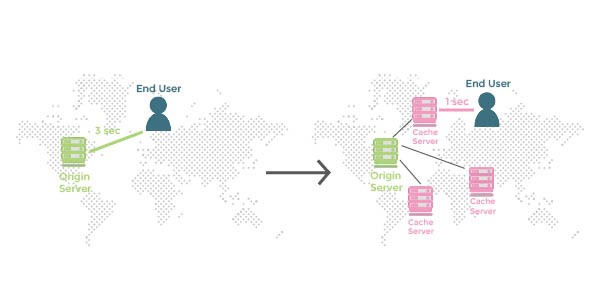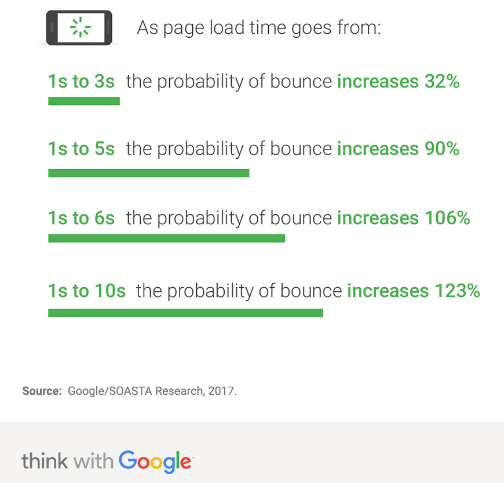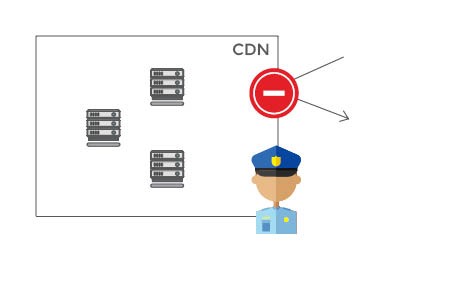You may have heard the term Content Delivery Network or CDN before. If you’re reading this you probably want to know what a CDN is, and if your website needs to use one. Well, before we jump into the what, why and how, please first ask yourself the following questions:
- Do you have an international presence? Is your target market in a different country to where your website is hosted or your business located?
- Is yours a resource-hungry website with a lot of high definition videos or imagery that make it slow to load
- Does your current hosting plan have limited server resources which are slowing down your website loading times?
- Is your website business critical and in need of a higher level of security than you currently experience?
If you answered ‘yes’ to ANY of these questions, then a CDN may just be what you need. If you answered ‘no’ to ALL of these questions and you run a strictly localised business, then a CDN is unlikely to benefit you (but do feel free to read on if we’ve piqued your interest).
So, what is a CDN and how does it work?
In a typical hosting environment a website is installed on a single web server. When a request is made to load a webpage from a website, that request is sent directly to the web server and content is delivered to your browser for display on your screen. The time it takes for the content to load is referred to as latency, and although delays caused by latency can be inherent in a poorly optimised webpage, a notable proportion of latency-associated delays can be due to the geographical distance between you and the website’s hosting server.
In contrast, a CDN is a virtual global network of web servers that store a cached (copied) version of your website content in multiple locations across the globe (these are known as PoPs or Points of Presence). Within PoPs are caching servers whose job it is to deliver content from a website to a user, based on where that person is located. A primary goal of a CDN is to reduce latency and this is achieved with the use of PoPs in multiple locations reducing the physical distance between the user and the website’s content.

What is the primary purpose of a Content Delivery Network?
The main advantage of a CDN is increased site speed (due to reduced latency) and the ability to deliver content to users all around the world without regard to the specifications or speed of the hosting server.
But, why is site speed important and does site speed affect Google ranking?
We covered in some depth the reasons why site speed matters in a 2016 blog post. And although the numbers may have changed, the message remains the same: if your website is slow to load, you’ll lose visitors and if you lose visitors you’ll lose conversions. The following graphic from Think with Google highlights the results of research into bounce rates (people leaving a page) on slow loading mobile websites — given that mobile use has surpassed desktop we think it is fairly safe to extrapolate these results out across other devices too:
Plus, Google is so keen on having sites load faster that it even made site speed a ranking factor back in 2010.
The second and equally important advantage of using a CDN is website security. Cyber security is a moving target particularly as spammers and hackers become more and more sophisticated with their methods of intrusion. A CDN acts like a security guard blocking attacks and stopping access to your origin server. Data breaches, DDoS attacks and malicious bot abuse can all be prevented. Even in the unlikely event that a cached server is compromised, your site will still be accessible through the other servers within the CDN network.

Ready to Make the Move?
Here at Limelight Online we have experience in the use of several CDNs (via providers Cloudflare , AWS Cloudfront and Microsoft Azure) and a number of our clients utilise a CDN network to improve site speed and keep their websites safe from malicious attack. Which CDN is right for you will come down to a mixture of personal preference and cost/feature choices. Most CDNs have a free version of their service with limited features, but this may be too restrictive for your needs (e.g., if you require your own SSL certificate rather than a shared one). As part of the CDN selection criteria we will work with you to analyse the needs of your website and balance this against the cost/benefit of each CDN option.
If you’ve read our decision-making criteria above and feel like your website would benefit from a CDN then drop us a line today to get started — we’ll guide you through CDN selection and walk you through the implementation process to make the switch as simple as possible.